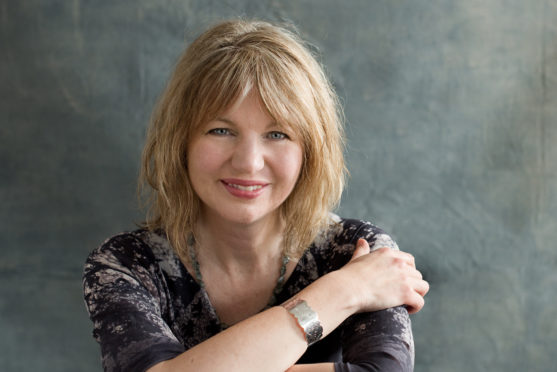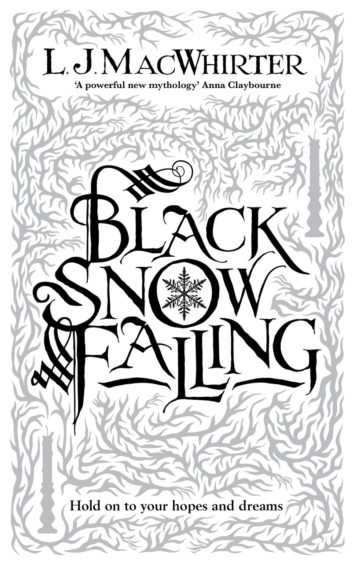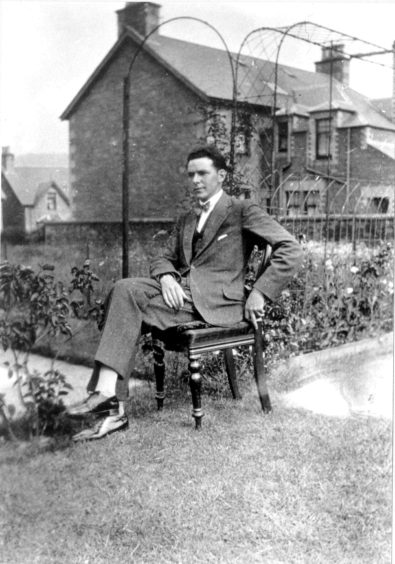If you thought dream analysis was a modern phenomenon you’ll be surprised to learn that even as far back as the second century AD people were fascinated by their dreams. Oneirocritica –The Interpretation of Dreams – is an ancient Greek treatise on dream interpretation written by professional diviner Artemidorus.
Author and copywriter Liz MacWhirter has been fascinated by dream psychology since she was at university and will be speaking at the new Soutar Festival of Words in Perth this weekend, which explores Scottish poet William Soutar’s fascination with dreams and his dream journals.
“The festival is for anyone who’s interested in Scottish authors and contemporary arts in all its forms,” she explains. “There’s a special emphasis on the beauty of the Scots and Gaelic languages.”
Liz reveals that her own dreams are very lucid. “While I’m not superstitious, some do seem meaningful,” she muses.
“Once I dreamt I was holding a white owl as it beat its wings and looked at me with one huge eye! It was so vivid – in the dream I could ‘feel’ the feathers and its ribcage moving. It woke me up and I just knew I was telling myself to be wise… I started to take steps out of a relationship that I was in at the time.”
Liz’s latest book Black Snow Falling refers to a mysterious dream that haunts her main character, Ruth, in 1592.
“I didn’t consciously choose to write a novel about dreams – it felt as though the theme ‘found’ me,” says Liz. “Ruth feels increasingly unsettled, then learns that she will be forced into marriage while other betrayals accompany this.
“It’s all so painful, it doesn’t just break her heart but splits apart time itself, where she encounters dream thieves rampaging through the years, stealing people’s hopes and dreams,” she continues.
“It’s a dark story with a thread of hope, and the magical realism amplifies the reality of what’s going on for Ruth. I decided to set the book largely in the 16th Century as it was easier for my characters to lose hope; there was absolutely no ‘safety net’ in society.
“However, the dream thieves can travel to any time and place – taking the idea onto a bigger scale, in Black Snow Falling our ‘hopes and dreams’ are a metaphor for the vital spark inside us all that drives us forwards in our lives. Likewise, the dream thieves could represent many things, including the ‘monster’ within,” she reflects.
Liz was inspired to write the book while walking through Glen Etive, talking with a young person whose life had been very difficult.
“Despite all he’d suffered, he was telling me about his dreams for the future and I found myself wishing that nothing else would happen that might take away his hope,” she says. “And then I had the writer’s ‘what if…?’ experience. What if our hopes and dreams were tangible objects that could be stolen? I knew this was a novel and I knew I had to write it.”
Liz hopes Ruth’s story is a thrilling read and encourages readers to trust themselves and keep going. She’s currently working on another historical novel, this time set in the wilds of Scotland in the 15th Century.
“It means learning some Gaelic, which will be a first,” she smiles.
If you thought dream analysis was a modern phenomenon you’ll be surprised to learn that even as far back as the second century AD people were fascinated by their dreams. Oneirocritica –The Interpretation of Dreams – is an ancient Greek treatise on dream interpretation written by professional diviner Artemidorus.
Author and copywriter Liz MacWhirter has been fascinated by dream psychology since she was at university and will be speaking at the new Soutar Festival of Words in Perth this weekend, which explores Scottish poet William Soutar’s fascination with dreams and his dream journals.
“The festival is for anyone who’s interested in Scottish authors and contemporary arts in all its forms,” she explains. “There’s a special emphasis on the beauty of the Scots and Gaelic languages.”
Liz reveals that her own dreams are very lucid. “While I’m not superstitious, some do seem meaningful,” she muses.
“Once I dreamt I was holding a white owl as it beat its wings and looked at me with one huge eye! It was so vivid – in the dream I could ‘feel’ the feathers and its ribcage moving. It woke me up and I just knew I was telling myself to be wise… I started to take steps out of a relationship that I was in at the time.”
Liz’s latest book Black Snow Falling refers to a mysterious dream that haunts her main character, Ruth, in 1592.
“I didn’t consciously choose to write a novel about dreams – it felt as though the theme ‘found’ me,” says Liz. “Ruth feels increasingly unsettled, then learns that she will be forced into marriage while other betrayals accompany this.
“It’s all so painful, it doesn’t just break her heart but splits apart time itself, where she encounters dream thieves rampaging through the years, stealing people’s hopes and dreams,” she continues.
“It’s a dark story with a thread of hope, and the magical realism amplifies the reality of what’s going on for Ruth. I decided to set the book largely in the 16th Century as it was easier for my characters to lose hope; there was absolutely no ‘safety net’ in society. However, the dream thieves can travel to any time and place – taking the idea onto a bigger scale, in Black Snow Falling our ‘hopes and dreams’ are a metaphor for the vital spark inside us all that drives us forwards in our lives. Likewise, the dream thieves could represent many things, including the ‘monster’ within,” she reflects.
Liz was inspired to write the book while walking through Glen Etive, talking with a young person whose life had been very difficult.
“Despite all he’d suffered, he was telling me about his dreams for the future and I found myself wishing that nothing else would happen that might take away his hope,” she says. “And then I had the writer’s ‘what if…?’ experience. What if our hopes and dreams were tangible objects that could be stolen? I knew this was a novel and I knew I had to write it.”
Liz hopes Ruth’s story is a thrilling read and encourages readers to trust themselves and keep going. She’s currently working on another historical novel, this time set in the wilds of Scotland in the 15th Century.
“It means learning some Gaelic, which will be a first,” she smiles.
Black Snow Falling by Liz MacWhirter is published by Scotland Street Press, £12.99.
The Soutar Festival of Words runs until tomorrow at venues across Perth. Liz will be talking about dreams, her journey to being published and the craft of writing at the Emerging Authors Showcase tomorrow at 1.30pm at the AK Bell Library, together with Conner McAleese and Tracey Emerson. £5 per ticket. www.culturepk.org.uk
Common dreams and what they might mean:
Falling – Are you afraid that things aren’t going well?
Being naked in public – Are you worried that something about you is phony and may be revealed?
Chasing – Who’s chasing you? Is your unconscious trying to communicate with your conscious mind? Or are you running away from something?
Losing teeth – Have you lost confidence or are you afraid of losing power?
Death and dying – Are you grieving the passing of a child’s stage in life as they grow up? Or do you need a fresh start?
Taking a test – Are you a perfectionist and afraid of failure?
Flying – Can you let go of something which has been holding you back? Or is something feeling out of control?
Pregnancy/ babies – Perhaps you’re feeling vulnerable or uncertain?
Animals – Are you repressing an instinct or desire?













